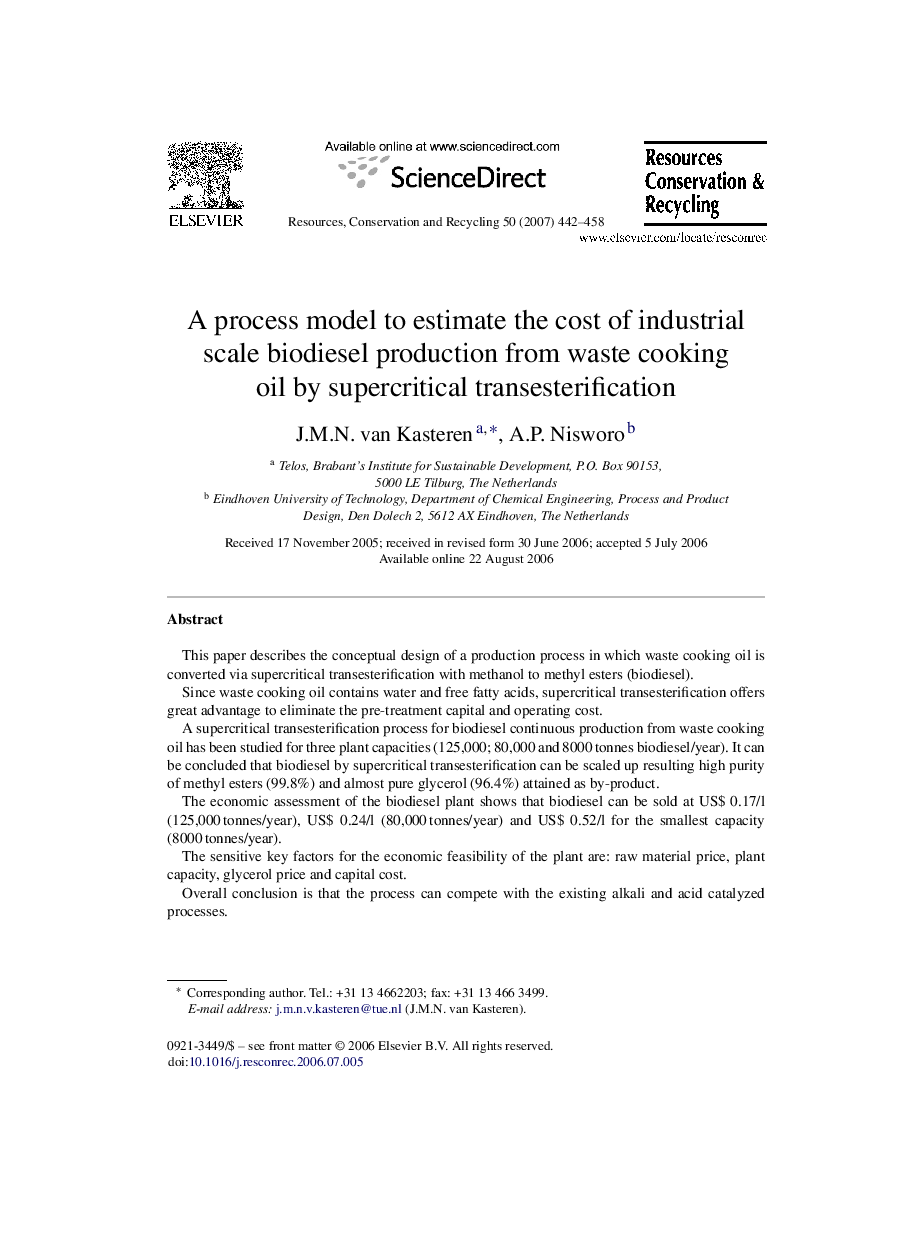| Article ID | Journal | Published Year | Pages | File Type |
|---|---|---|---|---|
| 1064079 | Resources, Conservation and Recycling | 2007 | 17 Pages |
This paper describes the conceptual design of a production process in which waste cooking oil is converted via supercritical transesterification with methanol to methyl esters (biodiesel).Since waste cooking oil contains water and free fatty acids, supercritical transesterification offers great advantage to eliminate the pre-treatment capital and operating cost.A supercritical transesterification process for biodiesel continuous production from waste cooking oil has been studied for three plant capacities (125,000; 80,000 and 8000 tonnes biodiesel/year). It can be concluded that biodiesel by supercritical transesterification can be scaled up resulting high purity of methyl esters (99.8%) and almost pure glycerol (96.4%) attained as by-product.The economic assessment of the biodiesel plant shows that biodiesel can be sold at US$ 0.17/l (125,000 tonnes/year), US$ 0.24/l (80,000 tonnes/year) and US$ 0.52/l for the smallest capacity (8000 tonnes/year).The sensitive key factors for the economic feasibility of the plant are: raw material price, plant capacity, glycerol price and capital cost.Overall conclusion is that the process can compete with the existing alkali and acid catalyzed processes.Especially for the conversion of waste cooking oil to biodiesel, the supercritical process is an interesting technical and economical alternative.
